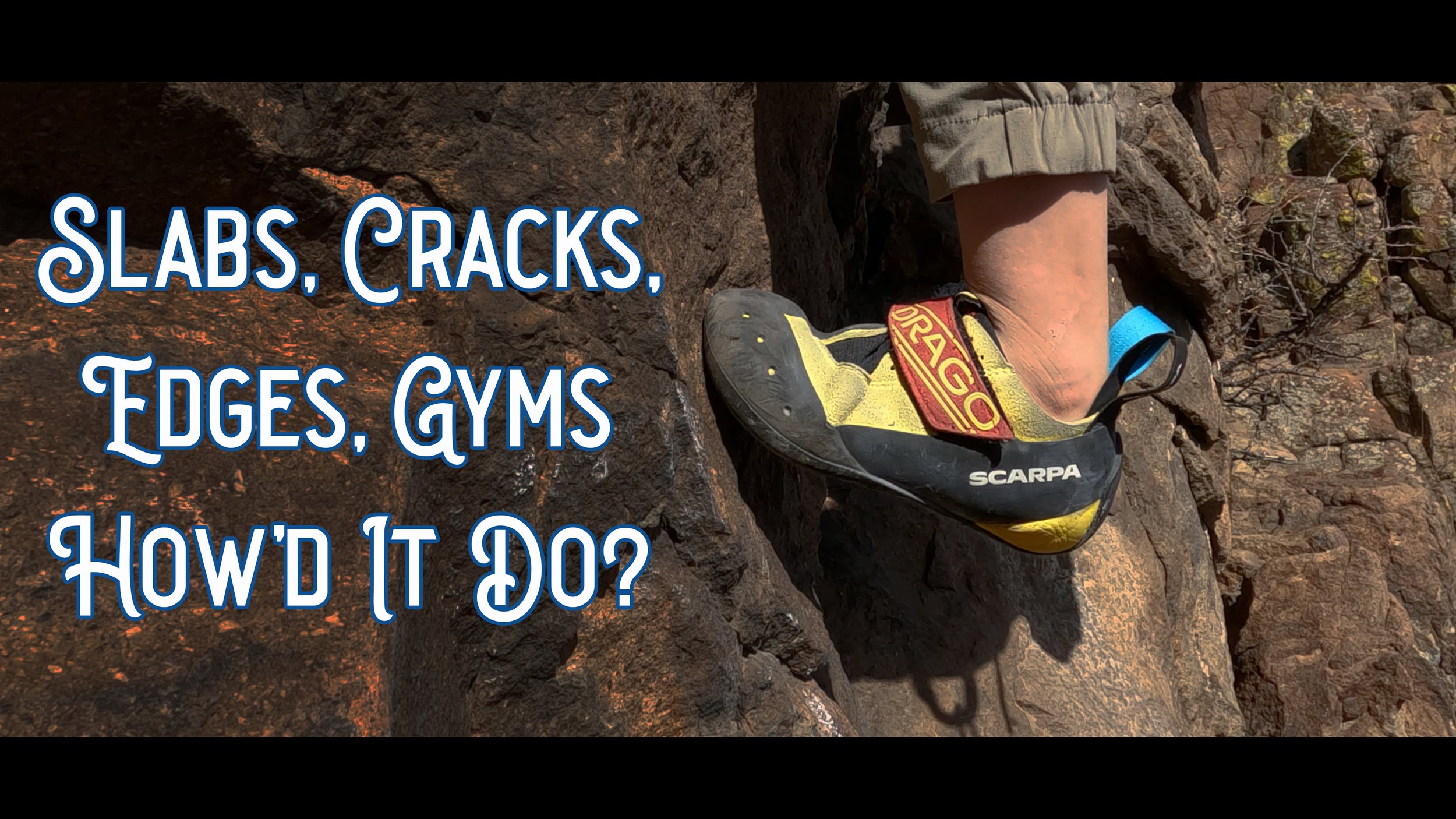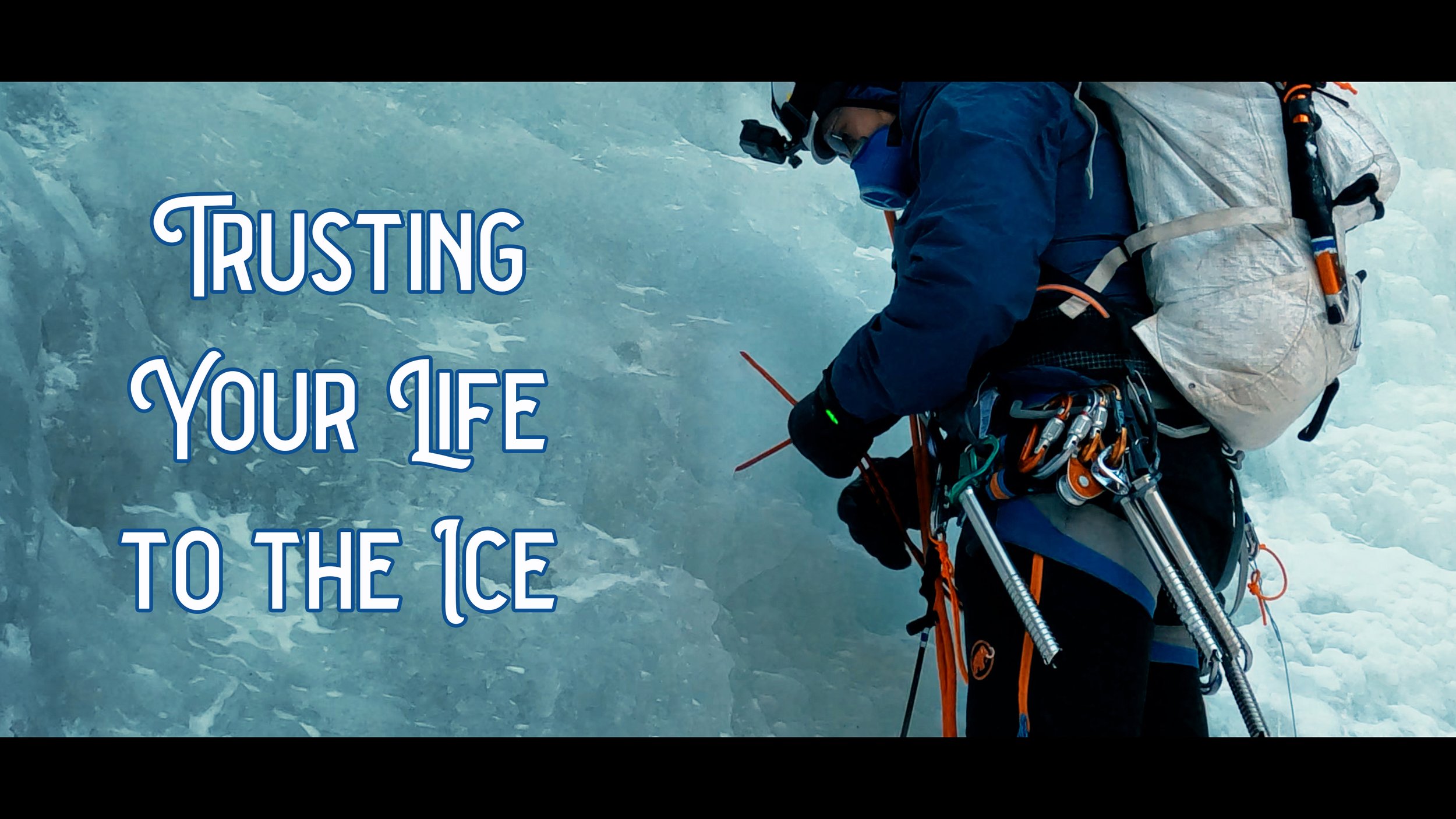All blogs
Every full length (longer than 60 seconds) video and accompanying blog post
From the Military to the Alpine: Using "Slow is Smooth and Smooth is Fast" as a Climbing Mantra
It's Mental Health Awareness Month so let's get into some of the mental aspects of adventuring. Years ago, I had a military friend introduce me to the phrase “slow is smooth and smooth is fast.” I lean on that line of thinking quite often when in the backcountry and particularly when rock climbing, ice climbing, alpine climbing, or mountaineering. Danger and fear can create a strong desire to rush through a situation, and I often remind myself that slowing down and avoiding rework will often speed me up, overall.
Reviewing the Ocun Webee Kids' Climbing Harness
Our twin boys have diversified their climbing disciplines, moving from top rope to multi-pitch climbing, ice climbing, and even sport climbing on lead. As they've moved into climbs that demand gear management, we needed a new harness that had gear loops but still fit their small frames. That harness is the Ocun Webee Kids' version. Check out the review.
Long Term Review of the Outdoor Research Kids' Helios Sun Hat: Camping, Climbing, and Summits
My twin (now) 8-year-olds beat up their gear when they are camping, hiking, and attempting summits, but we've managed to keep them in an Outdoor Research Kids' Helios sun hat for about two years. The hats are still going strong, but like any piece of gear, they aren't perfect. Here's a long term review of these handy, comfortable, and durable adventure hats.
Tailored Quickdraws for Rock Climbing Kids: Considerations to Make Secure Clipping Easier
Maybe you have kids and this will help, or maybe just thinking through carabiners more rigorously will help you think through if you want to make changes to your own rack. My twin boys are starting to take on multi-pitch rock climbing and single-pitch sport climbing leads. Both require that they handle quickdraws. In order to make sure they had as easy of time as possible with managing the rope, managing climbing, and managing the gear, I searched for specific carabiner choices for their draws. Here's the criteria we used and the carabiners we've selected.
Review of the Scarpa Drago Kids' Rock Climbing Shoe
As my twin boys' rock climbing advanced, they were ready to make the jump from an entry-level shoe to a more performance-based shoe. Here's what we've learned about the Scarp Drago Kids' climbing shoes after a few seasons of use.
Sequencing Efficient and Safe Breaks in Harsh Alpine Climbing and Mountaineering Conditions
Alpine climbing and mountaineering often happens in harsh conditions. When dealing with extreme cold, being able to do the right things in the right order when taking a rest can mean the difference between gaining strength and resolve or losing them. Last week, we did a video on packing our packs and stuffing our pockets with an eye towards efficient rest stops. In this video, we go through a typical sequence of steps when at the rest stop, itself.
Packing Your Winter Alpine Climbing Pack and Pockets: the First Step to Efficient and Safe Rests
When alpine climbing on a cold and slippery winter summit, being safe with your body temperature and with your gear when taking a rest stop comes down to quality management of all of those things. But quality management of those things begins with having the right stuff accessible in your pack and in your pockets. This video goes over how to pack for efficient rest stops. Our next video will go into the sequence we often use during those rest stops to ensure we stay warm, safe, and don't lose any gear.
Review of the Flip Fuel Transfer Device for Alpine Climbing, Backpacking, and Camping Fuel Canisters
Transferring canister fuel from one canister to another may save you money, weight, or both as you prepare for your next climbing, backpacking, or camping trip. But, it's not without its risks. In the video, we review the FlipFuel transfer device and demonstrate how to use it.
How to Build Snow Walls to Protect Your Basecamp or Alpine Climbing Camp in Winter
When we go climbing in the winter, take on alpine climbs in the shoulder seasons, or go to high altitude, we are likely to face camping in the snow. If we are going to keep a camp at a single location for a longer period of time, or if we are facing whipping winds, we may want to build snow walls to better shelter our tent. Here's how to build them.
Winter Camping is a Mountaineering Skill. My Kids Wanted to Try a Deeply Cold 48 Hours Out.
Climbing big mountains in anything more than a day, may demand that you cold-weather camp as well as you climb. It's the key to your recovery at the end of each day. My twin eight-year-old wanted to try winter camping in truly cold weather. It got down to -6 F (-21C). Here's what I was thinking about and focused on teaching them during these 48 hours out.
The Pros and Cons of the Girth Hitch (or Larksfoot) Master Point Climbing Anchor
The girth hitch, or larksfoot, master point climbing anchor has come into vogue, with climbers extolling the virtues of their ease to tie and untie along with the minimal gear needed to make them. But, like all things in climbing, there are pros and cons to these climbing anchors, and we need to understand the strengths and weaknesses of some of our options when we construct them.
Comparing A-Threads and V-Threads for Ice Climbing Anchor Strength
Are a-threads or v-threads stronger? What makes a "threaded" ice climbing anchor strong in the first place? In this video, we go a little deeper into the characteristics of stronger and weaker threaded anchors and go through a tutorial of how to build a good one.
Two Methods of Dividing the Rope for Glacier Travel
When we form a rope team for glacier travel on a mountaineering route, we need to get the tie in points placed efficiently. While we may make different decisions on how far apart to place climbers based upon the crevasse sizes, the mix of terrain, and communication difficulties, we will always end up at the need to divide the rope and tie the knots where we want them. Here are two methods for doing so.
Which Climbing Carabiner Gate Styles Resist Jamming with Snow and Freezing Best?
If you've ever had a carabiner freeze shut or freeze open, you know how troubling or potentially dangerous it can be. While we always want to try to find the right carabiner for the job, when we add in snow, ice, and cold we need to also consider how resistant our carabiner styles are to freezing. I ran a little experiment to compare how well (or not well) different gate styles stood up to harsh, cold conditions.
Climbing Slings, Climbing Knots, and Climbing Anchors: Are Knots in Slings a Good Practice?
Knots weaken soft climbing materials like slings, but we tie knots in slings all the time. Particularly the high forces that anchors can face during multi-pitch climbing will make us want to be sure our anchors are reliable. So, why do so many people tie knots in anchor slings? And isn't this worse with dyneema? Let's go deep into this topic.
Lenz Heat Glove 6.0 Finger Cap Review: Is This Glove Any Good for Climbing, Hiking, or Camping?
For the past two winters, I have been experimenting with battery-heated gloves as I've gone out camping, hiking, and climbing. Like all niche gear, they are good at some things and not so good at others. Here is a full review of the Lenz Heat Glove 6.0 Finger Cap.
Are Battery-Heated Gloves Worth It for Backcountry Hiking, Camping, or Climbing?
When we go climbing, camping, or hiking in the backcountry during the winter, we tend to stay out longer and experience more extreme conditions. As advances in technology have improved battery-heated gloves, are they now able to perform well enough and long enough to make them worth having in your gear closet?
Climbing in Winter: What to Expect Mountaineering on 13ers and 14ers (Roughly 4000 Meters)
Winter peak climbing has its own unique challenges. Borrowing from my winter mountaineering experiences on Colorado 14ers, Colorado 13ers, and my climbs around the world, here is what new winter climbers can expect so that they may better prepare themselves for the challenges of summiting in the coldest months.
How to Switch Hands On Your Ice Climbing Tools
Ice climbing, and particularly mixed climbing, sometimes demands that the climber switch which tool is in which hand. There are lots of ways to switch hands on your ice tools, and all of them have pros and cons. This video breaks down three different techniques and then lets you know which one I typically use and why.
Keep Kids Hands Warm for Winter Climbing, Hiking, & Camping: Glove Systems Learned from Ice Climbing
Ice climbing usually demands a lot of different gloves. Different portions of ice climbing need more dexterity and therefore less insulation. Some portions are the opposite. Some portions expose your hands to a lot of water. Here's how the approach ice climbers use to pick gloves to bring can help us think through how different gloves, in combination, can help us ensure our kids have warm hands on their climbing, hiking, and camping adventures in winter.




















